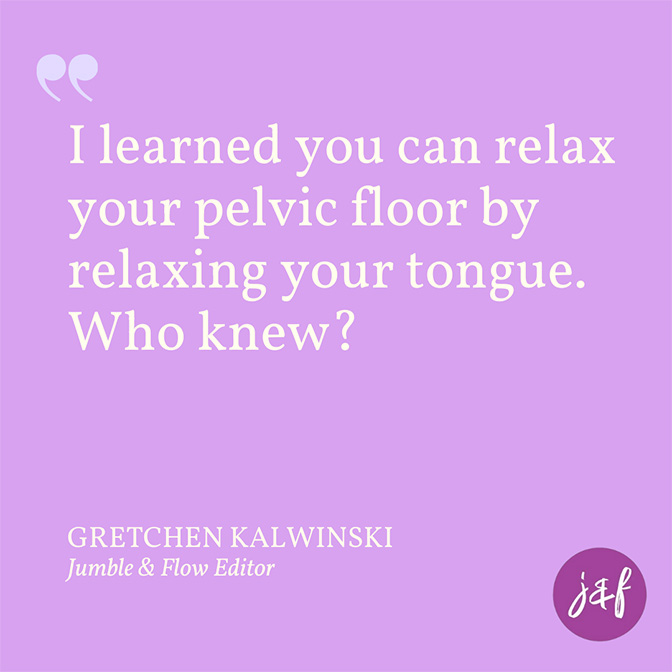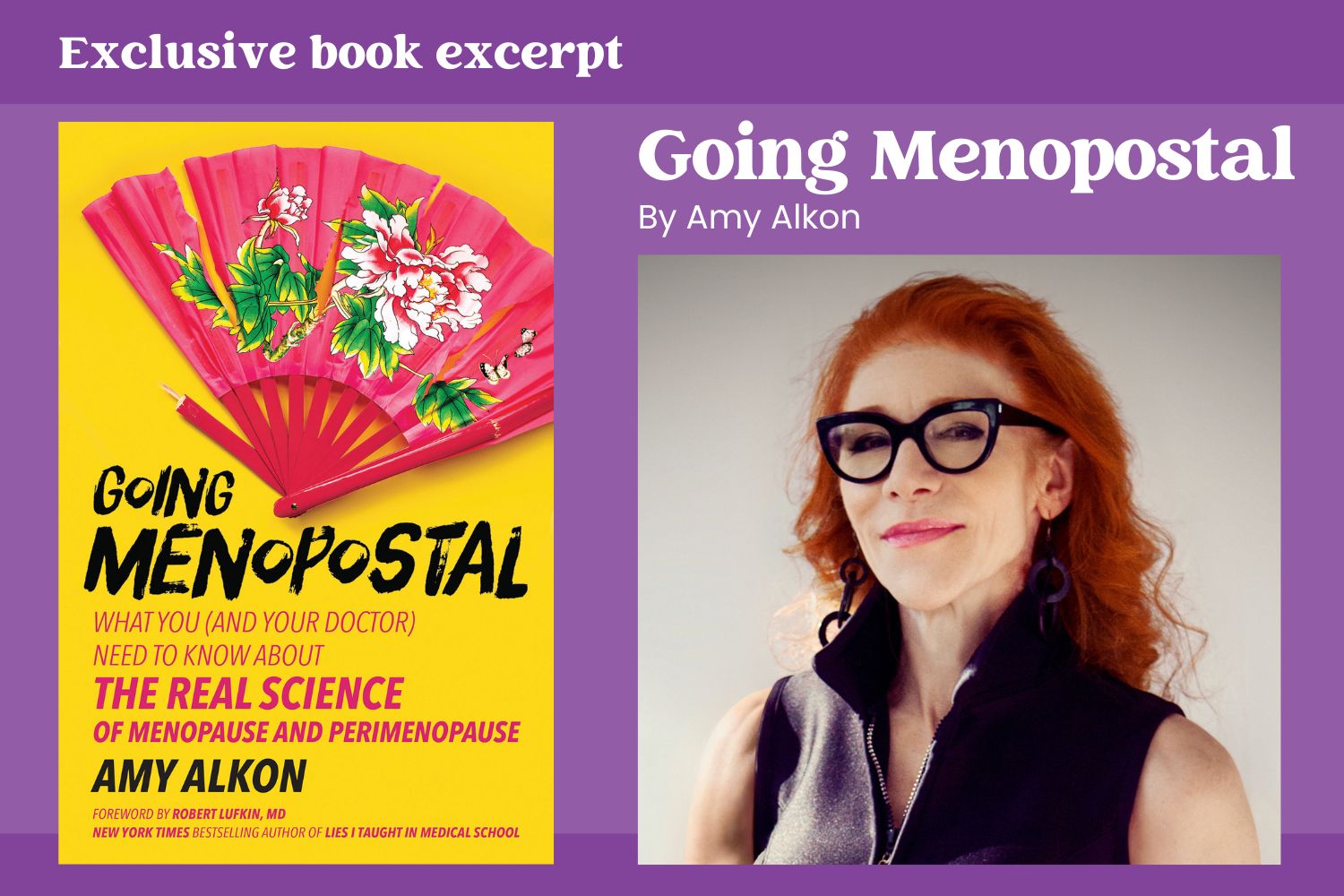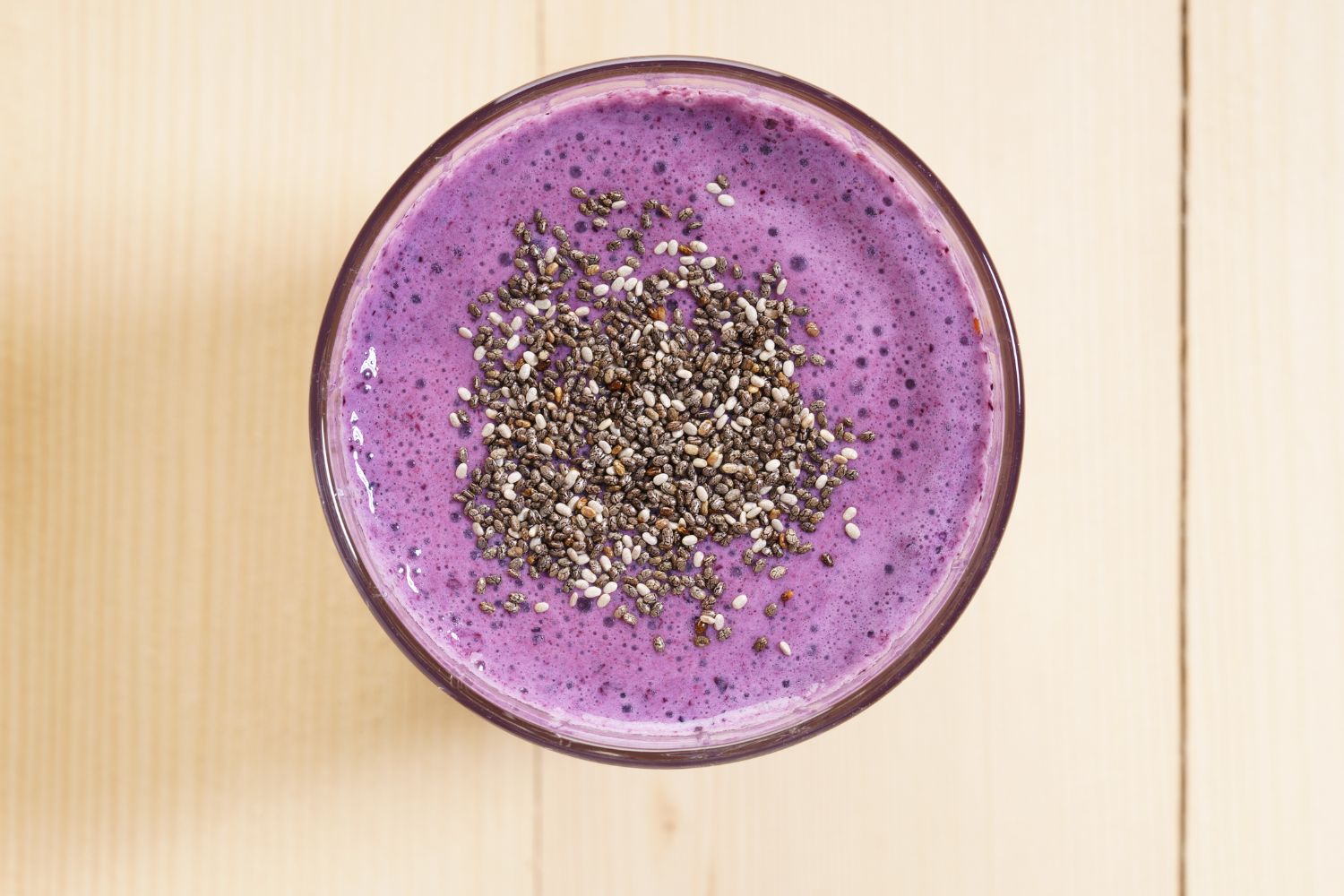
Finally! Elektra Health delivers the perimenopause and menopause support we deserve
Elektra Health is revolutionizing what it means to be menopausal. In addition to online menopause care, the women’s health leader provides a digital platform with 1:1 support, telemedicine care, MD-vetted education, and a private community.
When they asked Jumble & Flow if we wanted to try the program, I leapt at the chance. As a perimenopausal woman experiencing mood swings, midsection weight gain, and disrupted sleep, I’ve been eager to tackle these telltale symptoms but not sure where to start.
What I learned on Elektra
Curious about night sweats? Libido? Vaginal dryness? Emotional health? It’s all here in a warm, supportive, easy-to-access package.
I like how Elektra corrals perimenopause issues in one platform, instead of picking it up piecemeal and ad-hoc, as I usually do from different Facebook group comments or various online articles. The info on Elektra’s site translates nicely to a mobile app experience and the modules and events are also available there.
Elektra’s “one-stop shop” mode reminds me how underserved this audience is, and it’s frankly thrilling to see perimenopause — formerly an ignored women’s problem — being given this amount of respect, attention, and space.
I love that Elektra’s approach is “evidence-based expertise and information” and rooted in science. Meaning that while there is holistic information (i.e., magnesium and guided visualizations for sleep problems), there are no jade eggs for sale here — looking at you, Gwyneth).

How Elektra Health works
After signing up, I received an email titled “Your Elektra journey begins TODAY.” I quickly realized, to my relief, that the program’s format is flexible, customizable, and simple. Members can truly participate “how they want, when they want.” As someone with a complex schedule, this was crucial to my ability to participate.
An Elektra membership allowed access to:
- Well-organized, engaging, and funny content
- Community discussions about relevant topics like low libido, thinning hair, or talking to your primary care doctor about symptoms
- One-on-one support with an Elektra Guide (mine was Milwaukee-based nurse practitioner Laura Stratte)
The community aspect consists of discussion feeds; some started by members and some prompted by outside links, i.e., an NPR segment and inspirational quotes about vulnerability and connection from Brené Brown.
The last time I checked the feeds, there were threaded conversations about hot flashes, shifting and disappearing waistlines, joint inflammation, and more.
There are also Zoom events and conversations; for instance, one titled “Sex, Intimacy and Menopause” with Elektra’s sexual-health expert Jacqueline Giannelli, (FNP), and Helen Leff, (LCSW), sexuality counselor and psychotherapist, who delved into the ways our sexual health can be affected by hormones and perimenopause/menopause.
It was during this event that I discovered that it can be emotionally beneficial for perimenopausal women to schedule sex, a book about pelvic-floor physical therapy (Sex Without Pain by Heather Jeffcoat), Shana Feste’s scripted erotic podcast called Dirty Diana (starring the raspy-voiced Demi Moore), and that you can relax your pelvic floor by relaxing your tongue. Who knew?
Another highlight was Elektra’s virtual salon with Stacy London (former What Not to Wear star and current State of Menopause CEO), about her evolution from style to wellness — and obliterating menopausal shame.
London describes herself as “white-knuckling” through this life phase and experiencing a loss of identity and cultural relevance, plus the physical changes like night sweats and hot flashes that made her feel emotionally raw, anxious, depressed, and “meno-rage-y.” Once she got to the other side, she wanted to connect with people who’d experienced the same things — particularly the mental-health aspects. And that’s why she started State Of — to offer products (supplements, cooling gels, body creams, etc.) and other management tools like a newsletter, for the perimenopausal and menopausal stages of life.
What is the future of menopause?
Menopause is having a cultural moment, and since Elektra launched in 2021, their platform has grown to include more discussions around topics like hormonal and non-hormonal treatments. After meeting with Guides, members also receive custom wellness plans with actionable tips and vetted product recommendations to help them conquer their top symptoms.
As for me, now that I’ve absorbed some informative content and been thoroughly de-shamed by the spectacular Stacy London, I’m armed with information about things like HRT, and how joint pain and inflammation are linked to peri. I’m ready to visit my doc with a list of questions and the beginning of a plan.
More about Elektra Health
Elektra Health was founded by Alessandra Henderson and Jannine Versi and is “built around one simple mission: smashing the menopause taboo.”
Elektra’s goal is to provide access to world-class, evidence-based virtual care, education, and a community for women to learn about their bodies and receive personalized care for their symptoms.
Their “About” page tells it like it is: “50 million women are currently navigating menopause in the U.S. While this transition is a universal female experience, it’s shrouded in stigma, shame, and secrecy. We believe it’s time to change this outdated narrative.”



